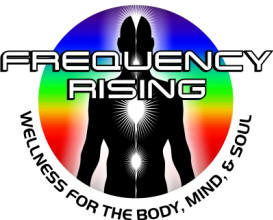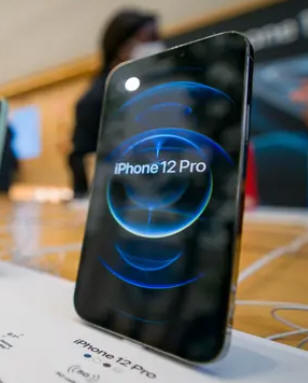Joseph Keating was only 26 years old when he
died of myocarditis on Nov. 12, 2021, four days
after receiving his third dose of Pfizer’s
COVID-19 vaccine. Mr. Keating had no idea he was
experiencing a "rare" heart problem from his
vaccination.
Myocarditis Caused by COVID-19 Vaccine Spike
Protein Is Often Not Detected by Typical Cardiac
Tests
Joseph Keating was only 26 years old when he
died of myocarditis on Nov. 12, 2021, four days
after receiving his third dose of Pfizer’s
COVID-19 vaccine. Mr. Keating had no idea he was
experiencing a "rare" heart problem from his
vaccination.
Family members said Mr. Keating's only warning
signs were fatigue, muscle soreness, a sore
throat, and an increased heart rate. He did not
experience any hallmark signs of a heart
problem, such as chest pain, shortness of
breath, or a fluttering heart that would warrant
a trip to the emergency room.
According to his autopsy report (pdf) and death
certificate, Mr. Keating died of severe heart
damage from “myocarditis in the left ventricle"
due to the "recent Pfizer COVID-19 booster
vaccine.”
When the pathologist's preliminary analysis of
Mr. Keating’s heart appeared normal, he decided
to take 22 different slides of tissue for
further assessment and discovered vaccine
inflammation had damaged and attacked his entire
heart.
Mr. Keating's sister Kaylee Koch, in
correspondence with The Epoch Times, said her
family contacted the Centers for Disease Control
and Prevention (CDC), legislators, local news
stations, their governor, and the local health
department, yet have received no response.
According to the CDC's website, the agency
actively monitors reports of myocarditis and
pericarditis after COVID-19 vaccination, which
includes "reviewing data and medical records and
evaluating the relationship to COVID-19
vaccination." The CDC also states they
investigate reports to their Vaccine Adverse
Event Reporting System (VAERS) classified as
"serious" by attempting to obtain medical
records to better understand the event. Yet
according to the family, the CDC never
investigated Mr. Keating's death or requested
his medical records.
Mr. Keating's family sent documentation,
including the autopsy report, to the National
Institute of Allergy and Infectious Diseases (NIAID)
in hopes they could find answers and prevent the
same fate from happening to others.
His sister said the NIAID disregarded his
documentation and concluded Keating's
myocarditis and resulting death were not caused
by the vaccine but also could not identify or
attribute his death to any other cause.
CDC's Myocarditis Definition Excludes Severe
Cases
Myocarditis is heart muscle inflammation that
can lead to cardiac arrhythmia, cardiac arrest,
stroke, and death. The National Organization for
Rare Disorders states that myocarditis can
result from infection but is more commonly a
result of the body’s immune reaction to the
initial heart damage.
According to VAERS, 26,103 cases of myocarditis
and pericarditis were reported between Dec. 14,
2020, and July 28, 2023, with 19,855 cases
attributed to Pfizer’s COVID-19 vaccine and
5,729 cases to Moderna.
According to the CDC's website, the agency began
investigating the long-term effects of
myocarditis in 2022 by contacting anyone who
reported an event to VAERS that met the agency's
case definition for myocarditis. Mr. Keating's
family was never contacted.
Although the CDC says myocarditis following
COVID-19 vaccination is a rare and mild adverse
event, the agency uses a narrowed case
definition that excludes cases like Mr.
Keating’s.
To meet the CDC’s case definition of myocarditis,
people must have had “symptoms such as chest
pain, shortness of breath and feelings of having
a fast-beating, fluttering, or pounding heart,
and medical tests to support the diagnosis of
myocarditis and rule out other causes.”
Based on this definition, the CDC can exclude
cases of cardiac arrest, ischemic stroke, and
death due to heart problems that occur before
one can go to the hospital or obtain a
diagnosis. Mr. Keating wasn’t diagnosed with
myocarditis prior to death and did not
experience the symptoms that would typically
fall under the CDC’s case definition. Yet he
died of myocarditis following his third COVID-19
vaccine dose.
The CDC website does not state what happens to
these cases, and there is no indication they are
followed or included in the CDC’s myocarditis
numbers.
Myocarditis Induced by COVID-19 Vaccination
Is Different From Other Causes
Results of a large cohort study published in
April 2022 in the Journal of the American
Medical Association Cardiology showed both first
and second doses of mRNA vaccines were
associated with an increased risk of myocarditis
and pericarditis. For those who received two
doses of the same vaccine, the risk of
myocarditis was highest among males aged 16 to
24 after the second dose.
Researchers noted the findings to be consistent
with data showing between four and seven excess
events in 28 days per 100,000 vaccinees after
Pfizer vaccination and between nine and 28
excess events per 100,000 vaccinees after
Moderna.
“There is emerging evidence following mRNA
injections that myocarditis is different than
other causes and much more common than
originally thought or admitted to by the CDC,"
interventional cardiologist Dr. Jack Askins told
The Epoch Times in an email. “Cardiac
involvement following mRNA 'vaccination' is
approximately 3% according to a recent Swiss
study (not 0.001% as claimed by the CDC).”
He added that studies assessing troponin
elevations reveal incidence is much higher than
incidence based on symptoms. Troponins are
proteins released into the bloodstream when
heart damage occurs. A cardiac troponin test
measures the levels of troponin T or troponin I
proteins in the blood. Typically, troponin stays
inside the heart muscle’s cells, but damage to
those cells causes troponin to release into the
bloodstream. The higher the troponin levels in
the blood, the more extensive the heart damage.
Before the COVID-19 vaccine rollout, myocarditis
caused by viral infections such as adenovirus
and influenza was the most common cause of heart
inflammation in children, pediatric cardiologist
Dr. Kirk Milhoan told The Epoch Times. Although
myocarditis can be caused by COVID-19, the
myocarditis developed by a healthy young person
post-infection is “extremely mild.”
According to Dr. Milhoan, myocarditis caused by
the COVID-19 vaccine differs from viral
myocarditis because an infection of the heart
isn't causing the damage. It's being damaged by
the "spike protein that's cardiotoxic to the
heart," which causes inflammation in the three
main vessels of the heart and has a different
process.
"There’s a difference between the body
encountering a virus naturally that causes
myocarditis and actively giving the body
something we know causes harm," he said.
A 2023 study published in Circulation showed
mRNA vaccine-induced immune responses did not
differ between those who developed myocarditis
and those who did not, but “free spike antigen
was detected in the blood of adolescents and
young adults who developed post-mRNA vaccine
myocarditis, advancing insight into its
potential underlying cause.” In other words, the
study found that spike protein was detected in
the blood of individuals with post-vaccine
myocarditis but was not found in vaccinated
control subjects with no myocarditis.
Dr. Askins said autopsies have shown spike
protein from vaccination in the myocardium of
patients who died following COVID-19 vaccination
and should be required in all cases where the
cause of death is "unknown," in cases of "sudden
adult death syndrome," or where a sudden death
leaves "doctors baffled."
Myocarditis Caused by COVID-19 Vaccination
Often Evades Normal Tests
According to Dr. Milhoan, obtaining an accurate
diagnosis of vaccine-associated myocarditis is
challenging.
“The way the vaccine injury works, the heart
often forms a scar that we don’t always pick up
on our other usual tests. Normally if we study
someone with suspected myocarditis, we will get
labs that reveal damage to the myocardial cell,
such as a troponin level, an EKG to see how the
heart looks electrically, an echocardiogram, and
a stress test," he said. "But these are often
normal in someone with myocarditis following
COVID-19 vaccination.”
This is why the gold standard for detecting
myocarditis following COVID-19 vaccination is
cardiac magnetic resonance imaging, also known
as a cardiac MRI, Dr. Milhoan said. A cardiac
MRI is used for more complex heart conditions
and shows a more detailed picture of what's
happening in the heart. It can detect damage to
the heart muscle that goes undetected by other
tests.
A September 2022 study published in The Lancet
assessed the clinical outcomes and quality of
life of 519 adolescents and young adults at
least 90 days after the onset of
vaccine-associated myocarditis. Of the 519
patients, a subset of 151 patients had cardiac
MRIs, with 81 patients displaying one or more
abnormalities, including 71 with late gadolinium
enhancement (LGE) and 22 with edema—fluid or
inflammation in the heart triggered by heart
damage.
LGE is a technique applied in cardiovascular
magnetic resonance to distinguish macroscopic
scarring and heart attacks from the normal
muscular tissue of the heart. It's a strong
predictor of outcomes associated with an
increased risk of all-cause mortality, heart
failure hospitalization, and sudden cardiac
death.
Treatment of Myocarditis Caused by COVID-19
Vaccination
The primary treatment for myocarditis, whether
caused by a vaccine or virus, is to rest the
heart and avoid exercise for six months,
according to Dr. Milhoan. Patients who are very
sick are given medications to lower their blood
pressure and heart rate so the heart doesn’t
have to work as hard.
After letting the heart rest, a repeat cardiac
MRI is done to evaluate the risk of cardiac
death. If there’s enough of a scar, doctors may
consider putting in an implantable defibrillator
to detect and stop irregular heartbeats, also
known as arrhythmias.
“The heart has to beat at least 60 to 70 times a
minute, which is over a hundred thousand times a
day, so we can never completely let the heart
rest like you’d let another muscle rest,” said
Dr. Milhoan. “The body is really good at healing
itself, and the heart has an amazing ability to
recover if we do not abuse it further."
Dr. Askins believes reports of athletes
collapsing aren’t necessarily due to exercise
furthering heart damage but to the exertion that
provokes arrhythmias. “Weeks and perhaps
months later, these arrhythmias may be provoked
by exercise and a hyperadrenergic state—norepinephrine
release resulting in collapse and sudden deaths
in athletes and others," he wrote in an email to
The Epoch Times.
As for the damage unique to vaccinated
individuals caused by free-floating spike
protein in the blood, Dr. Milhoan says there’s
currently no medicine or supplement to
remove spike protein from the blood.
“We’re trying things, but we don’t have a
protocol, and sometimes the problem is that the
damage is already done," he said. "It’s like
when you already have a scar on your skin; you
can do a lot of things, and you are still going
to have a scar. Once a scar on the heart forms,
you’re at risk for all sorts of things, and you
can do nothing to take that scar away.”
Dr. Milhoan said everyone acknowledges COVID-19
vaccines can cause myocarditis, but the debate
is over how common it is. The CDC says the
condition is rare, but physicians knowledgeable
about vaccine-associated myocarditis treating
these patients and reviewing the data say that's
not the case.
“With most vaccines, we are looking at a
one-in-a-million side effect profile, but now we
are in numbers that are no longer acceptable
regarding the risk-benefit profile," he said. "I
just want people to have accurate data to make
informed decisions."
The Epoch Times reached out to the NIAID and the
CDC for comment.
Source:
Author Megan Redshaw is an attorney and
investigative journalist with a background in
political science. She is also a traditional
naturopath with additional certifications in
nutrition and exercise science.







